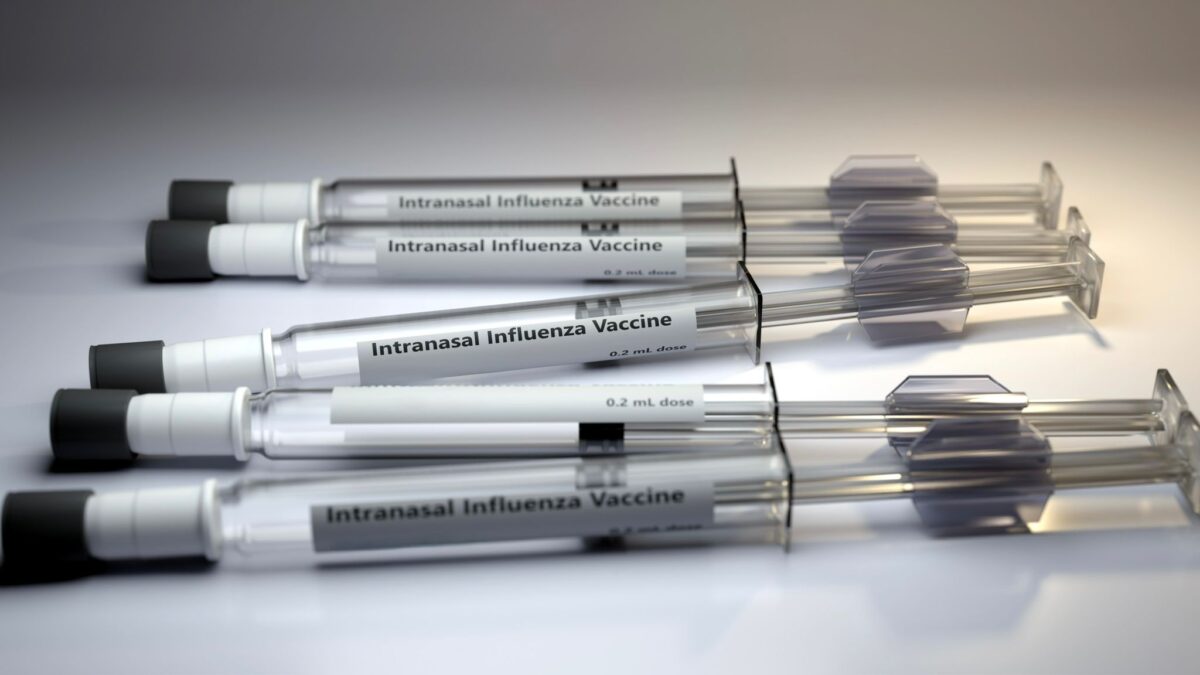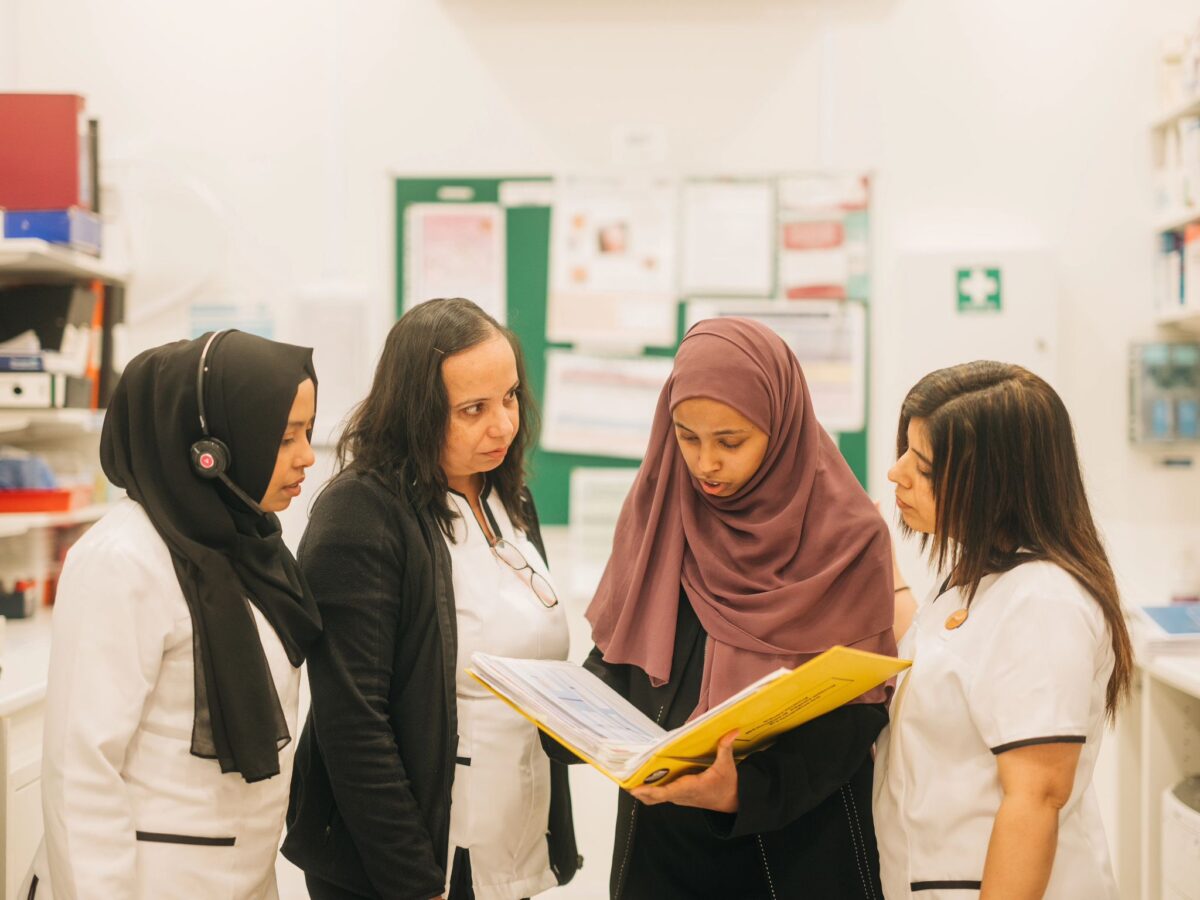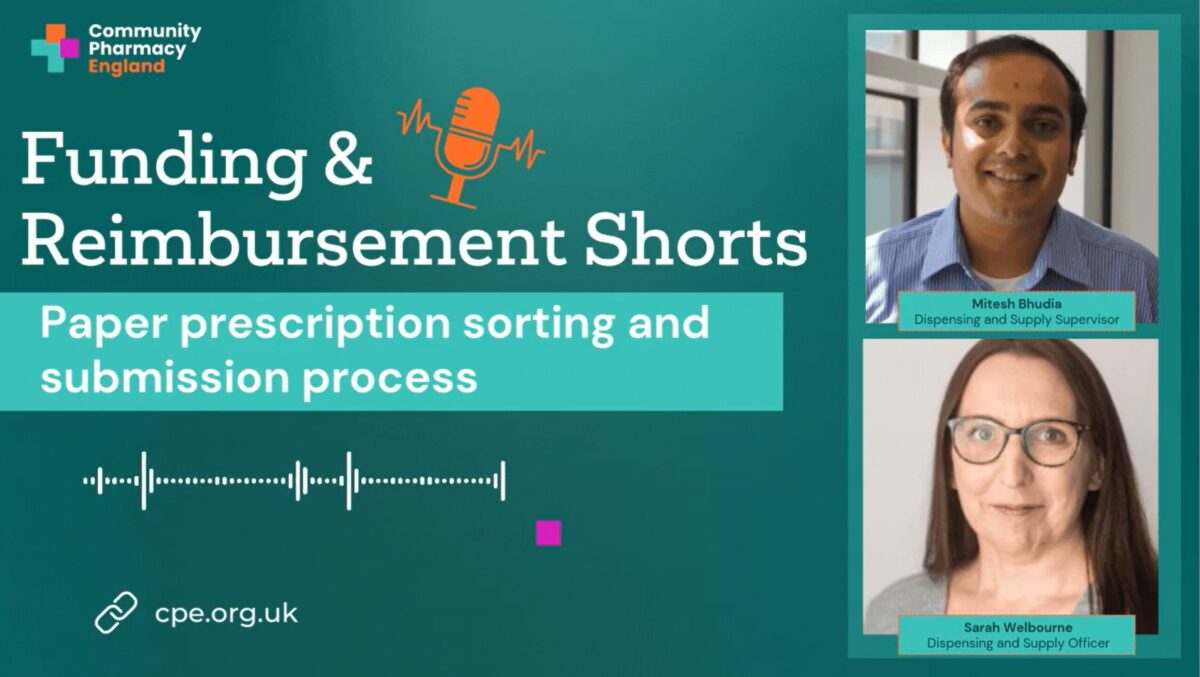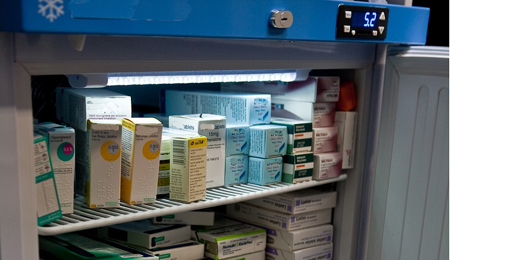Childhood Flu Vaccination Service – FAQs
Published on: 19th September 2025 | Updated on: 19th September 2025
This page contains the answers to Frequently Asked Questions (FAQs) on the Childhood Flu Vaccination Service.
Click on a heading below for more information.
Q. How do pharmacy owners inform NHS England that they intend to provide the Childhood Flu Vaccination Service?
Pharmacy owners need to register to provide the service via the NHS Business Service Authority’s (NHSBSA) Manage Your Service (MYS) portal.
Q. Is registering for the service an expression of interest only?
No, this is an Advanced service so, registering for the service via MYS confirms you intend to provide the service from your pharmacy.
Q. I provide adult flu vaccines; is provision of the childhood service mandatory?
No. This is an Advanced service, so pharmacy owners are free to choose if they wish to provide the service.
Q. Can distance selling premises pharmacies provide the Childhood Flu Vaccination Service?
Yes. Distance selling premises (DSP) pharmacies can deliver the Childhood Flu Vaccination Service onsite, at the DSP pharmacy, until 31 March 2026. After this date, if the service continues to be commissioned in future seasons, they will only be able to provide the service off-site, subject to the permission of the service commissioner.
Q. What insurance should you have for the Childhood Flu Vaccination Service?
Advice should be sought from your trade body or insurance provider.
Q. My pharmacy doesn’t have a consultation room; can I provide the Childhood Flu Vaccination Service?
No. Having a consultation room is a prerequisite for provision of the Childhood Flu Vaccination Service. Vaccinations can be offered in any area of the pharmacy where suitable facilities are available and patient confidentiality is able to be respected. However, the vaccination must take place in the consultation room wherever the patient’s parent or carer expresses this preference. The consultation room must comply with the requirements in the Terms of Service.
Q. We are a distance selling pharmacy without a consultation room; can I provide the Childhood Flu Vaccination Service to children from an offsite location?
No. Pharmacy owners must have a consultation room that meets the requirements of the Terms of Service, even if they intend to vaccinate off-site only.
Q. When does vaccination of children against flu begin?
The community pharmacy service will commence from 1st October 2025, supplementing the existing offer in general practice which will commence from 1st September.
Q. Why are pharmacies starting later than general practice?
General practice has historically provided the service and community pharmacies have been commissioned for a one-season trial of administering flu vaccinations to children aged 2-3 years to assess the impact of pharmacy participation on this element of the vaccination programme. Operationally, a delayed start in community pharmacy allows sufficient time to support the onboarding of community pharmacies with the various IT systems required to support the service. It also ensuring that there is sufficient time for delivery of centralised vaccine stock to pharmacy sites ahead of the start of the service.
Q. Does a pharmacy owner have to make a ‘prescription register’ entry for each administration of vaccine under the national PGD?
No. The records required to be maintained by the PGD, which should be made on the date of administration, meet the requirements to make records in the Human Medicines Regulations.
Q. Do pharmacists, pharmacy technicians (and other individuals authorised to work under the PGD) have to sign a copy of the national PGD?
Yes, pharmacists, pharmacy technicians (and other individuals authorised to work under the PGD) must sign a copy of the PGD in each pharmacy they work in where they intend to provide the service to indicate that they understand the PGD requirements and agree to work under those requirements.
Q. Can the PGD be signed remotely (electronic signature) by the authorising manager, for example, from the pharmacies’ head office for all their pharmacies?
Yes. It is possible for the PGD to be signed remotely (electronic signature); however, the authorising manager still needs to be able to confirm that pharmacists, pharmacy technicians (and other individuals authorised to work under the PGD):
- Are aware of the service specification and requirements for provision of the service;
- Have demonstrated their competence to provide the service; and
- Has the organisation’s approval to provide the service.
Q. Should a copy of the signed PGD be kept at the pharmacy for each pharmacist, pharmacy technician (or other individuals authorised to work under the PGD) providing the service at the pharmacy?
Yes. The PGD states that a copy of the PGD with the completed practitioner authorisation sheet should be retained and available at the pharmacy premises as a record of those practitioners authorised to work under the PGD.
Q. Does a pharmacy owner need to keep evidence of vaccinator competency for all individuals that deliver the Childhood Flu Vaccination Service?
Yes. The service specification states that pharmacy owners must keep evidence of competency relating to any staff that they employ/engage to deliver the service.
Q. What is the legal basis for the administration of flu vaccinations in the Childhood Flu Vaccination Service?
A national PGD provides the legal authority for administering the vaccine.
Q. Can pharmacy staff other than a pharmacist or pharmacy technician administer the vaccine?
Yes. Under the authority of the national PGD and the associated regulatory requirements Childhood Flu vaccinations can be provided by any practitioner listed in the Qualifications and professional registration section of the PGD, which mirrors the groups of practitioners authorised to supply or administer medication via a PGD under current legislation.
However, the Responsible Pharmacist at the registered pharmacy premises is still professionally responsible for overseeing this service.
If the Responsible Pharmacist is unable to provide sufficient oversight, for example due to workload or where vaccinations are undertaken off the pharmacy premises, an on-site pharmacist or pharmacy technician responsible for the delivery of the Advanced service must be linked and work closely with the Responsible Pharmacist and Superintendent Pharmacist through an appropriate governance framework to ensure appropriate oversight of the service.
Q. Can a nurse administer the vaccine as part of the service?
Yes. Under the authority of the PGD. However, the Responsible Pharmacist at the registered pharmacy premises is still professionally responsible for overseeing this service.
If the Responsible Pharmacist is unable to provide sufficient oversight, for example due to workload or where vaccinations are undertaken off the pharmacy premises, an on-site pharmacist or pharmacy technician responsible for the delivery of the Advanced service must be linked and work closely with the Responsible Pharmacist and Superintendent Pharmacist through an appropriate governance framework to ensure appropriate oversight of the service.
Q. Can a pharmacy technician administer the vaccine?
Yes. Under the authority of the PGD. However, the Responsible Pharmacist at the registered pharmacy premises is still professionally responsible for overseeing this service.
If the Responsible Pharmacist is unable to provide sufficient oversight, for example due to workload or where vaccinations are undertaken off the pharmacy premises, an on-site pharmacist or pharmacy technician responsible for the delivery of the Advanced service must be linked and work closely with the Responsible Pharmacist and Superintendent Pharmacist through an appropriate governance framework to ensure appropriate oversight of the service.
Q. Can pharmacy technicians supervise NHS vaccination services in a community pharmacy?
The Responsible Pharmacist at the registered pharmacy premises is professionally responsible for overseeing this service.
If the Responsible Pharmacist is unable to provide sufficient oversight, for example due to workload or where vaccinations are undertaken off the pharmacy premises, an on-site pharmacist or pharmacy technician responsible for the delivery of the Advanced service must be linked and work closely with the Responsible Pharmacist and Superintendent Pharmacist through an appropriate governance framework to ensure appropriate oversight of the service.
Q. Can a pharmacist providing the service and qualified as an independent prescriber prescribe the vaccine for children, rather than using the national PGD?
No. The Advanced Service only uses the national PGD to authorise administration of the vaccine.
Q. Does the national community pharmacy PGD authorise administration of the vaccine for all eligible children covered by the NHS eligibility criteria?
No. The service is commissioned to administer flu vaccinations to children aged 2 and 3-years-old only. Children outside this age group who are eligible for an NHS flu vaccination should be signposted to their general practice or should be vaccinated by the school vaccination service, where applicable.
Q. Do pharmacists, pharmacy technicians (or other individuals authorised to work under the PGD) have to send a copy of the signed PGD to NHS England or another organisation?
No. The signed PGD should be retained in the pharmacy where the pharmacist, pharmacy technician (or other individuals authorised to work under the PGD) is administering vaccines.
Q. Can a pharmacy company with multiple pharmacies nominate one authorising manager for all pharmacists (and other individuals authorised to work under the PGD) signing the PGD, for example, the superintendent pharmacist?
Yes, as it is for the pharmacy owner to determine who should be an authorising manager within their organisation.
Q. Who should complete the authorising manager declaration section on the PGD?
It is for the pharmacy owner to determine who should be an authorising manager within their organisation. The authorising manager’s role is to confirm that individuals providing the service:
- Are aware of the service specification and requirements for provision of the service;
- Have demonstrated their competence to provide the service; and
- Have the organisation’s approval to provide the service.
In certain circumstances, for example, a community pharmacy where the pharmacist who will administer vaccines is also the superintendent pharmacist or pharmacy owner, it may be necessary for the authorising manager to be the same person as the practitioner, though this situation should be avoided wherever possible.
Q. Do pharmacy owners now have the option to choose their own point of care system, rather than having it selected for them?
Yes, pharmacy owners now have the flexibility to make their own decision on the choice of point of care IT systems to use to provide the service. The new framework eliminates the previous requirement for NHS England regional teams to commission a single IT system for all pharmacies in a given area.
Q. Does my pharmacy pay the system supplier directly?
No. NHS England will directly fund the suppliers for the 2025/26 financial year.
Q. Are all the systems the same?
NHS England has assessed all systems within a framework to ensure they can transfer the necessary data to GP practices, NHS England and the NHSBSA. However, suppliers may offer different interfaces and additional features beyond the baseline specification requirement.
Q. What key points should I consider when selecting an IT system?
We have some key points for pharmacy owners to consider when selecting a new IT system. For further details, visit the switching webpage within the NHS Futures: Pharmacy PoC hub (login required).
Q. Once a system is selected, can this be changed?
Even after a system is selected, further adjustments can be made if necessary, for instance, if the chosen system is no longer meeting your preferred requirements.
Q. Can I use a PoC provider that is not on the NHS England assured list?
No.
Q. Can I register with more than one PoC supplier?
No. A pharmacy site can generally only use one PoC system for the NHS Childhood Flu Vaccination Service provision during any calendar month.
Q. What guidance is available to assist with additional onboarding requirements for the service?
In addition to the service specification and PGD, NHS England have developed a guide that can assist pharmacy owners with the various activities required to ensure they have access to the relevant systems that support the service (access to the guide requires an NHS Futures log-in).
Community Pharmacy England also have a service page and a range of resources, including checklists and Briefings, to guide pharmacy owners and vaccinators through their implementation of the service.
Q. What IT systems do I need access to?
Pharmacy owners who intend to provide the service need access to the following IT systems:
- A point of care system;
- The Federated Data Platform (FDP) to manage vaccine delivery and supply;
- The national booking service (NBS) to publish and manage appointments;
- NHS Profile Manager; and
- MYS.
Q. Do I need to apply for new accounts for each system?
If you already have access to these systems for another vaccination programme, then you should use existing accounts, but may need to request additional access.
Q. Can I use my existing pharmacy appointment system instead of NBS?
No. Use of NBS is mandatory for the pharmacy childhood service.
Q. Can I order all the required flu vaccines for the service from centralised stock?
No. Pharmacies can order LAIV through the Supply Dashboard on FDP. Cell-cultured inactivated influenza vaccine (IIVc) will not be centrally supplied and pharmacy owners should obtain supplies by placing an order via manufacturers or wholesalers, in line with their normal approach to purchasing flu vaccine.
Q. Will my pharmacy receive any opening stock of LAIV?
Pharmacies registered for the service prior to 31st August 2025 and who have confirmed their details on FDP will automatically be provided with one pack of LAIV (10 doses) to be delivered during September for administration commencing 1st October.
Q. How do I order additional LAIV stocks?
Additional doses can be requested through the FDP supply dashboard, but before additional vaccine requests are approved, pharmacies must follow all steps in the onboarding process and must meet the requirements as set out in the service specification, which include:
- The pharmacy has recorded administration of at least 50% of the previously supplied doses and;
- Current stock levels are confirmed to be below one pack (10 doses) and either;
- A minimum of 20 appointments are available on NBS during the first month of service provision and a minimum of 10 walk-in appointments; or
- NBS booked appointments indicate a need for additional supply.
Q. Do I have to provide walk-in appointments?
Yes, there must be a minimum of 10 walk-in appointments advertised each month the service is provided.
Q. Do I need to provide weekend appointments?
The service specification requires that pharmacy owners must ensure walk-in clinic times offered promote access to the service, including late afternoons and Saturdays (where the pharmacy is open on Saturdays).
Q. What are the knowledge and skills required in order to provide a vaccination service?
The National Minimum Standards and Core Curriculum for Immunisation Training for Registered Healthcare Practitionersset out the knowledge and skills that healthcare professionals undertaking vaccination services need to have. NHS England has determined that individuals providing the service need to attend face-to-face training for both injection technique and basic life support training periodically.
Pharmacy owners and vaccinators need to consider when it would be appropriate to attend refresher training or if ongoing competence of an individual vaccinator can be evidenced, without the need for face-to-face training.
An individual’s continued competence may be influenced by their prior experience vaccinating patients, including the overall number of vaccines administered and the regularity with which they administer vaccines.
The standards recommend that immunisers should keep a portfolio of completed competency checklists, knowledge test score sheets, reflective logs, completion of e-learning course certificates and certificates of attendance at immunisation training courses and updates. This will provide vaccinators with a means to be able to show evidence of completion of training and achievement of competence to both current and future employers. It will also provide useful evidence of continuing professional development for professional revalidation.
Q. Where can I undertake training to provide vaccination services?
A range of organisations provide training on vaccination. A list of training providers is also available on our Childhood Flu Vaccination Service page in the Training requirements and resources section.
Q. I completed face-to-face training covering injection technique and basic life support last year, but I have been told that unless I vaccinated over a specific number of patients last year, I will need to re-do the training again this year. Does this apply to the NHS Advanced Childhood Flu Vaccination Service?
No, there is no training requirement linked to the vaccination of a specific number of patients within the NHS Advanced Childhood Flu Vaccination Service.
Q. I completed face-to-face training for both injection technique and basic life support two years ago; do I need to complete face-to-face training again this year?
Face-to-face training should be completed periodically (previously face-to-face training for both injection technique and basic life support was required every three years).
This requirement means that individuals need to consider their competence and any additional requirements set by their employer to inform a decision on when completion of face-to face training is appropriate.
Vaccinators are expected to undertake annual update training, to ensure their knowledge stays up to date with changes in practice and guidance. Annual update training may involve self-directed learning, using relevant references sources, such as the Green Book and the annual flu letter. It may also include online training which is available from a range of providers.
A vaccinator is personally responsible for keeping their knowledge and skills up to date and relevant to their roles and responsibilities. The vaccinator should reflect on their current competencies and decide whether further learning is required.
Q. I completed face-to-face injection technique and basic life support training last year. Do I need to complete online refresher training this year?
There is no requirement in the service specification to complete online refresher training, but the National Minimum Standards and Core Curriculum for Immunisation Training for Registered Healthcare Practitioners expect vaccinators to undertake annual update training to ensure their knowledge stays up to date with changes in practice and guidance.
As this is a new service, individuals should review their training and competence to ensure they are competent to administer vaccines to children aged 2 and 3 years old using both the live attenuated influenza (LAIV) and inactivated influenza vaccines. Any additional training required should be undertaken prior to commencing provision of the service.
Annual update training is also recommended to ensure individuals have up-to-date knowledge in relation to the provision of flu vaccinations in that year and any related matters, such as current guidance on infection control. This update training can be undertaken in a variety of ways, including self-directed learning and use of relevant references sources, such as the Green Book and the annual flu letter. Training can also include the use of online training materials which are available from a range of providers.
Q. There is free flu training available for healthcare professionals on www.e-lfh.org.uk; if I study it and pass the assessments, does it count as annual update training?
It is up to individuals to determine how they wish to do annual update training that meets their needs. This could include, for example, completing a CPPE learning pack, completing online training and assessments, reading relevant books/articles or watching videos.
Q. Is there any other training I should consider?
As well as training specifically on vaccination provision, pharmacy owners and individuals should consider training for themselves or their team on topics such as consultation skillsor first aid, or even marketing or time management, as these may better equip them to provide the service. The core vaccination training will cover matters such as management of allergic reactions and the patient consultation.
Individuals may also wish to consider training to support their awareness and understanding of their responsibilities under the Mental Capacity Act. Support with this topic can be found on the Social Care Institute of Excellence website where there are a range of training resources.
Q. How will pharmacy owners determine that their vaccinators have the necessary knowledge and skills to provide the service?
Options for assessing this include completion of the Vaccination services Declaration of Competence (DoC)(for pharmacists and pharmacy technicians only).
Alternatively, the competence of any vaccinators can be assured using the National minimum standards and core curriculum for vaccination training competency assessment tool in appendix A of the guidance.
This can be used as a self-assessment tool, an assessment tool for use with a supervisor or both depending on the previous experience of the vaccinator.
Q. Once a pharmacist or pharmacy technician has completed the DoC self-assessment framework and has printed and signed the statement of declaration, is the DoC process complete?
Once both documents have been completed and signed, the pharmacist or pharmacy technician will be able to demonstrate to the pharmacy owner that they are working for that they have the necessary knowledge and skills to provide the service. However, it is important to complete step 5 of the DoC process ‘Update your CPPE learning record’. This step confirms that the statement of declaration for Vaccination services has been signed.
Q. Since the requirement for face-to-face training for both injection technique and basic life support now needs to be completed periodically (previously this training was required every three years), will the DoC requirement also change so the requirements can be synchronised?
No. The DoC process remains unchanged; this needs to be completed every two years.
Q. If I am a pharmacy professional with a registered address in Wales or Scotland, but I will be working in an English community pharmacy providing the service, how can I access the DoC on the CPPE website?
Pharmacy professionals who work in England but live in Scotland or Wales can make a request to CPPE for their practice location to be changed on their database (telephone 0161 778 4000 or email info@cppe.ac.uk). This will allow the pharmacist or pharmacy technician access to learning and assessments plus the DoC. Every six months CPPE will automatically check if they still practise in England.
Q. The Vaccination services DoC provides a list of recommended learning and assessments; should all of these be completed?
This is a decision that needs to be made by the individual pharmacy professional. A pharmacy professional is personally responsible for keeping their knowledge and skills up to date and relevant to their roles and responsibilities. Working through the DoC system provides a pharmacy professional with the opportunity to reflect on their current competencies and identify and meet their learning and assessment needs.
The list of recommended learning and assessments will help pharmacy professionals to fill any gaps in their knowledge or competence to provide the Flu Vaccination Service.
Q. If a pharmacist has completed an independent prescribing course, does this mean they meet the Consultation Skills for Pharmacy Practice: Practice Standards for England, and can complete the core competency section in the Vaccination services DoC?
The wording in the core competency within DoC states that pharmacy professionals should be actively working towards the Practice Standards. This is because developing consultation skills is an ongoing process throughout the career of every pharmacy professional.
The independent prescribing course will have provided a pharmacist with an element of training on consultation skills to support them in working towards the Practice Standards. However, it would be down to the individual pharmacist to download the Consultation Skills for Pharmacy Practice: Practice Standards for England to see whether they feel the training they have undertaken has sufficiently supported them or whether further learning would be beneficial.
If a pharmacist feels they meet the standards and have a good understanding of consultation skills due to the learning they have undertaken, they should attempt the consultation skills e-assessment, which will help assess their skills in this area and provide reassurance of competency.
Q. Is it a requirement to have accessed but not necessarily completed the Consultation Skills for Pharmacy Practice: e-assessment to be able to provide the Advanced Flu Vaccination Service?
Pharmacy professionals, are not required to have completed the Consultation Skills for Pharmacy Practice: e-assessment before completing the Vaccination services DoC; they are required to meet or be actively working towards the Consultation Skills for Pharmacy Practice Standards for England.
If you confirm that you are actively working towards the standards, you are declaring that you are undertaking the relevant learning and CPD to meet the standards. It is expected that you will have accessed the standards and associated learning to meet this requirement and that you will complete the assessment within 12 months of signing the DoC statement.
As a pharmacy professional, you should continuously seek to develop your consultation skills throughout your career and, therefore, this topic should regularly feature in your CPD plan. To access the assessment, go to the CPPE website. If you have not yet completed the assessment, you should be able to provide evidence of the consultation skills learning you have undertaken.
Q. I completed the DoC two years ago. Do I need to complete it again?
Yes if this is your chosen method to confirm your competency. The DoC framework and statement of declaration need to be completed every two years Alternatively, the competence of any vaccinators can be assured using the National minimum standards and core curriculum for vaccination training competency assessment toolin appendix A of the guidance.
This can be used as a self-assessment tool, an assessment tool for use with a supervisor or both depending on the previous experience of the vaccinator.
You should also ensure they are competent to administer vaccines to children aged 2 and 3 years old using both the LAIV and inactivated influenza vaccines.
Q. Who does the recommendation for a period of supervised clinical practice apply to?
The document states that those new to immunisation should receive comprehensive foundation immunisation training, either through a face-to-face taught course or a blended approach of both e-learning and a face-to-face taught course. New immunisers should also have a period of supervised practice and support with a registered healthcare practitioner who is experienced, up to date and competent in immunisation.
Q. Does the recommendation for a period of supervised clinical practice apply to pharmacists and pharmacy technicians who have previously been trained to vaccinate?
If you have vaccinated patients in the past and consider yourself to be an experienced vaccinator, supervised practice would only be required if you think it would benefit your professional practice, for example, if a long duration of time has passed since you last vaccinated patients.
Q. I am a pharmacy professional who is commencing immunisation training for the first time, so, I can provide the Childhood Flu Vaccination Advanced Service? What are the steps I need to take?
If you are a new vaccinator we recommend the following steps:
- Complete your core training (face-to-face and any other learning directed by your training provider);
- Complete the Vaccination Services DoC on the CPPE website. Alternatively, the competence of any vaccinators can be assured using the National minimum standards and core curriculum for vaccination training competency assessment tool in appendix A of the guidance.
This can be used as a self-assessment tool, an assessment tool for use with a supervisor or both depending on the previous experience of the vaccinator.
- Undertake a period of supervised practice with a registered healthcare practitioner who is experienced, up to date and competent in immunisation; then
- Should any additional training need be identified during your supervised practice, undertake further training and then review your chosen competency tool.
Q. What is the idea behind undertaking a period of supervised practice?
In addition to acquiring knowledge through a theoretical taught course, practitioners need to develop clinical skills in immunisation and apply their knowledge in practice. A period of supervised practice will allow acquisition and observation of clinical skills and application of knowledge to practice when the practitioner is new to immunisation.
Q. What happens during a period of supervised practice?
Before starting to give immunisations, it is recommended that all new immunisers should spend time with an experienced registered practitioner, such as an experienced pharmacist or pharmacy technician immuniser, who has undertaken training that meets the national minimum standards and is experienced in advising about immunisation and giving vaccines. The new immuniser should have the opportunity in these sessions to observe and discuss relevant issues with the experienced practitioner.
Those new to their role in immunisation should also demonstrate an appropriate standard of practice to their supervisor. This supervised practice should be structured and robust and follow a clear, comprehensive checklist so each step of the consultation is considered. A competency checklist such as that included in Appendix A of the National Minimum Standards and Core Curriculum for Immunisation Training for Registered Healthcare Practitioners should be used for formal assessment and sign-off of the practitioner’s clinical competency in immunisation. A copy of the completed checklist should be retained in the practitioner’s personnel file.
Q. How long should a period of supervised clinical practice be?
The UK Health Security Agency advise that there is no agreement or evidence as to how many times supervised practice should occur, but both the supervisor and new practitioner need to feel confident that the practitioner has the necessary skills and knowledge to advise on and/or administer vaccines. If the practitioner administers a range of different vaccines to patients of different ages, their supervisor should ensure this is considered and they should be given the opportunity to observe and be assessed on this range.
Q. Are there any qualifications which apply to the experienced healthcare practitioner?
The supervisor does not require a formal teaching and assessing qualification but should be competent in immunisation and can make an assessment of a new immuniser’s knowledge and skills. One of the supervisor’s key roles is to go through the assessment document with the new immuniser and assure themselves that the new immuniser has the appropriate level of knowledge and skill to undertake their role in immunisation.
Q. Can another pharmacist or pharmacy technician act as the experienced healthcare practitioner within a period of supervised clinical practice?
Yes, if the pharmacist or pharmacy technician is competent in immunisation and can assess a new immuniser’s knowledge and skills.
Q. How can a period of supervised clinical practice be arranged?
There are several ways a supervision session could be arranged, for example:
- At the point of arranging face-to-face immunisation training, trainees could enquire whether the training provider could arrange such a session;
- New immunisers could speak to the pharmacy owner they work for to enquire whether they could arrange a supervised session with an experienced immuniser, within the same organisation; or
- New immunisers could contact local pharmacist or pharmacy technician colleagues, who are experienced immunisers, and ask them whether they would be willing to supervise a session within their pharmacy.
Q. Are there resources to assist with promoting the service?
Yes. The Childhood Flu Vaccination Service page on our website provides links to resources from Community Pharmacy England, UK Health Security Agency and other organisations which pharmacy owners can use to promote the availability of the service.
Q. I want to develop my own promotional materials for the Flu Vaccination Service, am I allowed to do this?
Yes; however, pharmacy owners must ensure they comply with the requirements of the Terms of Servicerelating to promotion of services funded by the NHS and if the NHS logo is used in materials related to the service, this must comply with the guidelines for use of the NHS identity by community pharmacies.
The Childhood Flu Vaccination Service page on our website provides links to resources from Community Pharmacy England, UK Health Security Agency and other organisations which pharmacy owners can use if they do not want to develop their own materials.
Q. Can a pharmacy owner provide a patients, parents or carers with any kind of free gift if they have a vaccination under the Advanced Service?
No. The Terms of Servicestate that a pharmacy must not offer any gift or reward to any person as an inducement to receive any Advanced Service.
Q. Can I vaccinate any eligible children covered by the NHS eligibility criteria?
No. The service is commissioned to administer flu vaccinations to children aged 2 and 3-years-old only. Children outside this age group who are eligible for an NHS flu vaccination should be signposted to their general practice or should be vaccinated by the school vaccination service, where applicable.
Q. How can we confirm a child is the appropriate age for inclusion?
Vaccinators can check the child’s date of birth to confirm eligibility for the service. The service covers all children aged 2 and 3 years of age on 31st August 2025– that means children who were born on or after 1st September 2021 and on or before 31st August 2023.
Q. A parent or carer has requested a flu vaccination for their child, but the child seems generally unwell; can they receive the vaccine?
Vaccination may be postponed in those who are acutely unwell until they have fully recovered. This is to avoid confusing the differential diagnosis of any acute illness by wrongly attributing any signs or symptoms to the adverse effects of the vaccine.
Q. Should pharmacy teams check with the child’s GP practice if the child has already had a flu vaccination?
In most cases the parent or carer will be able to verify if the child has received a flu vaccination at their GP practice; however, if the parent or carer is unsure, with consent, relevant care records should be checked or the GP practice should be contacted to confirm whether they have already been vaccinated or not to prevent the risk of the child being vaccinated twice where this is not indicated.
Q. Can a child who lives in one of the other home countries, for example, Wales or Scotland, have an NHS flu vaccine at a pharmacy in England?
Yes. There are no geographical restrictions placed on the provision of the service to eligible NHS patients.
Q. Can I administer flu vaccinations at an individual child’s home?
Yes. This is permitted where it is requested by the parent or carer. However, the pharmacy owner must obtain consent from the NHS England regional vaccinations team if they wish to carry out vaccinations at a location off the pharmacy premises.
Q. Do I need to obtain consent from the regional NHS England team before vaccinating a child their own home?
Yes.
Q. Can I administer childhood flu vaccinations at premises other than the pharmacy?
Yes. However, the pharmacy owner must obtain consent from the NHS England regional vaccinations team if they wish to carry out vaccinations at a location off the pharmacy premises.
Q. Is there an additional payment for vaccinations administered off-site?
No.
Q. Will my pharmacy need to be registered with the CQC to provide the service?
No. The CQC does not regulate community pharmacies in relation to the provision of pharmaceutical services (including administration of vaccines); that is the role of the General Pharmaceutical Council.
Q. What should I do if there is a power failure to the fridge containing the flu vaccines?
You should refer to the Vaccine incident guidance and the vaccine product’s Summary of Product Characteristics. Further advice could be obtained from your local screening and immunisation team.
Q. Is it mandatory for a pharmacy to have a Standard Operating Procedure (SOP) for the service?
Yes.
Q. Do we need to have a needle stick injury procedure?
Yes.
Q. Do pharmacy owners have to arrange their own clinical waste disposal service to dispose of waste resulting from the Childhood Flu Vaccination Service?
Yes.
Q. What would normally be contained in an anaphylaxis pack?
The Green Book states that an anaphylaxis pack normally contains two ampoules of adrenaline (epinephrine) 1:1000, four 23G needles and four graduated 1ml syringes, and Laerdal or equivalent masks suitable for children and adults.
Q. Can I use an adrenaline auto-injector to treat anaphylaxis?
The Green Bookstates that auto-injectors for self-administration of adrenaline should not be used as a substitute for a proper anaphylaxis pack (see above). However, if an adrenaline auto-injector is the only available adrenaline preparation when treating anaphylaxis, health care providers should use it.
Q. If a pharmacist or pharmacy technician administers adrenaline in an emergency to treat anaphylaxis, is a PGD required to authorise the administration?
No. Regulation 238 of the Human Medicines Regulations 2012 allows adrenaline to be administered by anyone for the purpose of saving life in an emergency.
Q. How long should a child be observed for following administration of the childhood flu vaccination to ensure they do not have an anaphylaxis reaction?
The Green Book states in the Anaphylaxis section in Chapter 8 Vaccine safety and the management of adverse events following immunisation(Page 5-6) ‘Onset of anaphylaxis is rapid, typically within minutes, and its clinical course is unpredictable with variable severity and clinical features. Due to the unpredictable nature of anaphylactic reactions, it is not possible to define a particular time period over which all individuals should be observed following immunisation to ensure they do not develop anaphylaxis.’
Q. What are the storage requirements for vaccines?
Vaccines should be stored in line with the requirements set out by their manufacturer in the Summary of Product Characteristics. The former National Patient Safety Agency issued an alert in 2010 giving guidance on vaccine cold storagefor all healthcare providers, including community pharmacies.
Q. What records should I make if a child has an adverse reaction to a vaccine?
A record of any adverse reaction from a flu vaccine and any treatment administered or advised should be made by the pharmacy. Where the adverse reaction is deemed to be clinically significant by the pharmacist or pharmacy technician, this information may also be shared with the patient’s GP practice. Pharmacists and pharmacy technicians are reminded to report all serious suspected ADRs, even if the effect is well recognised, and all suspected ADRs linked to new medicines and vaccines to the Medicines and Healthcare products Regulatory Agency (MHRA) via the Yellow Card scheme.
Pharmacy professionals can report suspected side effects to the MHRA via:
- The Yellow Card website; or
- The free Yellow Card app, downloadable from the Apple App Store or Google Play Store.
Q. Must parental or carer consent be recorded in writing?
No. Parental or carer consent should be obtained verbally and should be recorded in the pharmacy’s clinical record for the service. A signed consent record is not required.
Q. Does the child’s GP practice always need to be informed of the vaccination administered to their patient?
Yes.
Q. A local GP practice is communicating incorrect information to their patients about the community pharmacy Childhood Flu Vaccination Service. What should I do?
Talk to the practice manager at the GP practice to raise your concerns and try to get them to correct any misleading information that is being provided to patients. You should also let your LPC know about the matter and agree with them whether they or you will notify the NHS contract management team.
Return to the Childhood flu vaccination hub page
For more information on this topic please email comms.team@cpe.org.uk











